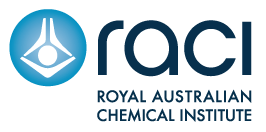How do you make a career change after a spending most of your life ensconced in chemistry? To get some insight, we recently debriefed with a member of our War on Wasted Talent community of experienced professionals, a senior chemist who has transitioned into a role in the intelligence sector. That’s a bit different!
On the surface, this may sound like rather an unusual career change. But the lessons learnt would apply to most career transitions as a mature-age professional. Here, we outline the process and mindset that worked so effectively for our chemistry colleague.
1. Provide a different lens through which people can view you and you can view yourself.
- Ask yourself the big questions – who am I and what can I do? This takes some deep reflection to move beyond your identity as a chemist.
- Stop and think about what else you can do and really understand your transferable skills. In particular, think about your motivated skills – the ones you most want to use in a new role.
- Revise your CV and develop a 120-word summary to describe yourself – key skills, achievements, values and aspirations – the essence of you. It takes discipline but is worth it.
2. Deal head-on with thoughts of ageism. Don’t engage in mind-reading by assuming you know what others are thinking.
- Negative stereotypes can play on your mind, such as ‘The organisation won’t be comfortable with me – they’ll think I won’t take instruction’ or ‘They’ll dismiss me as an older person who wants to work in the way I’ve always been accustomed to.’
- While most mature-age professionals don’t believe these stereotypes apply to them personally, these common misconceptions can still erode their confidence.
- Don’t succumb to these negative thought patterns and instead accept that most people are less judgemental or preoccupied with your age than you think.
- If an employer is ageist, would you want to work there anyway?
3. Frame your experience.
- One of the great advantages of age is experience.
- When making a career transition into a new field or sector, it follows that your breadth of experience is likely to be more of a selling point than your depth of experience in a relatively narrow field.
- Experience is not enough on its own. It needs to be tempered with a healthy dose of humility. An over-reliance on your experience as a selling point in a career transition can come across as complacent.
- Jobs are changing all the time and employers want to see a willingness to adapt and learn new skills. They want to see what you can do in the future, not just what you have done in the past.
- Both your application and interview should reflect this future-orientation. Always have examples on hand of where you have demonstrated an openness to change.
There is an underlying theme here. Although you can’t single-handedly change ageist attitudes in the workplace, when you approach career change with positivity, dig deep into your whole self and think of your age as an advantage, this is what tends to define the whole transition process. Your optimism and sense of self will shine through.
So, what’s life like in the new job for our chemist career-changer? Well, he describes it as ‘drinking from the firehose’ as he learns a whole new language. Although he came to this new role with very little knowledge of the subject, he believes he has made a meaningful contribution in a relatively short time. In doing so, he has drawn on his transferable skills of critical thinking, asking questions, collating information and writing. He says, ‘You do these naturally as a scientist, from the time you get out of bed in the morning. Working as a chemist, you don’t appreciate the many skills you have, but those skills have really come to the fore for me now’.



